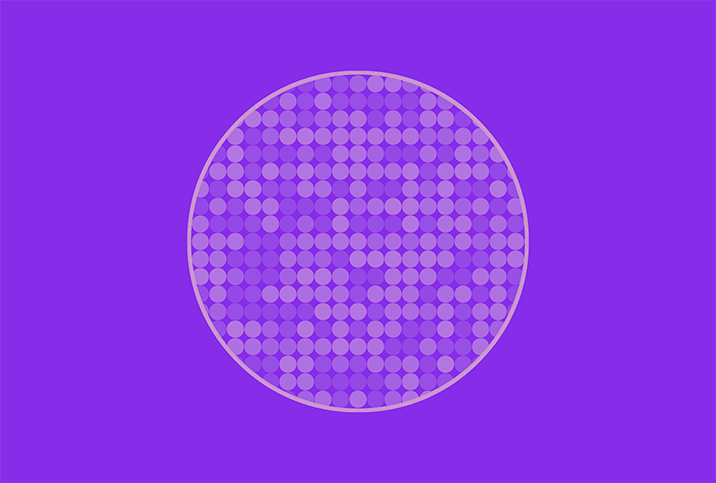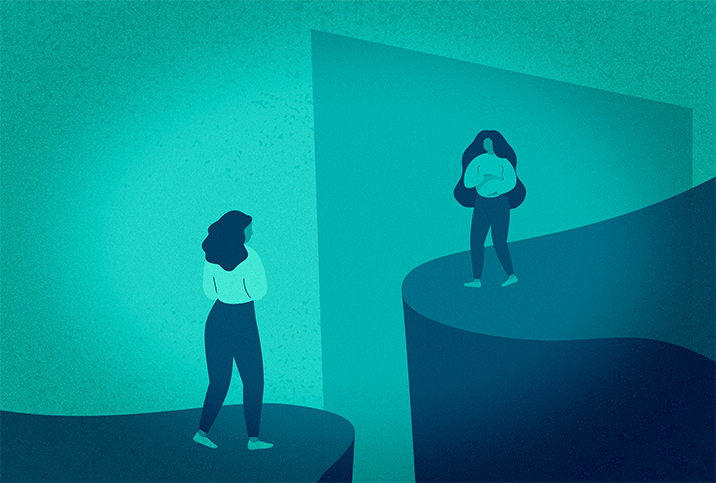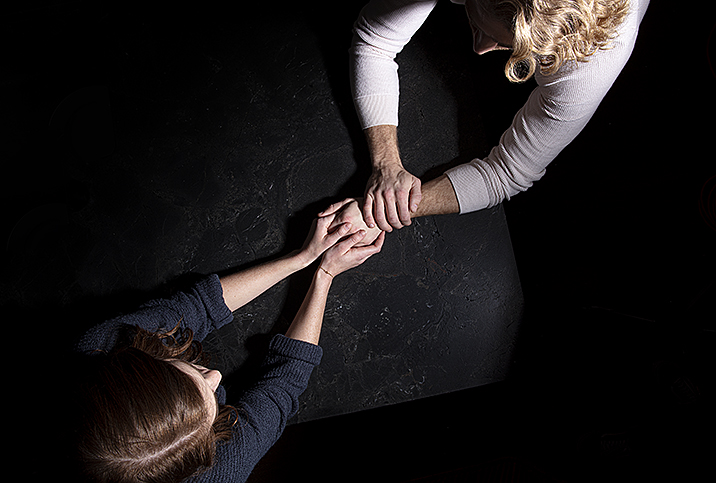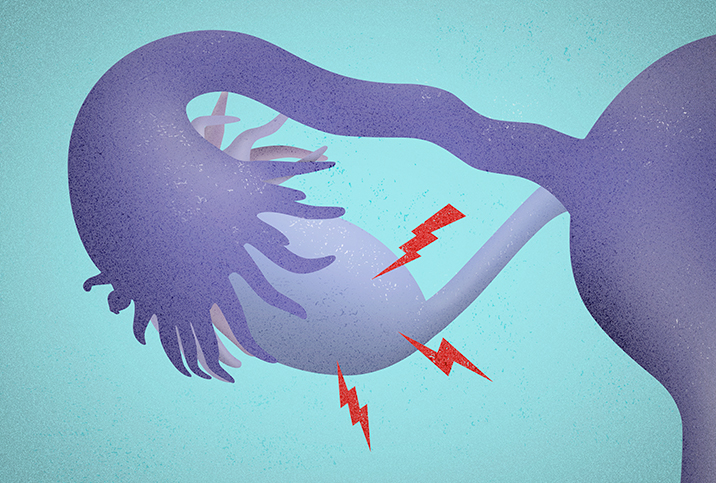I Have a Diminished Ovarian Reserve at 26 Years Old

It all started with an irregular menstrual cycle.
I had been on birth control since I was 16 years old, and as I approached 25, I was ready to be off it. I wanted to see how my body felt and functioned while not being on the pill.
In the beginning, I simply accepted that my cycle might go through a period of change as my body adjusted. I had never been the type to track or give much attention to my cycle. When it came, it came—and whenever it ended, I was just happy it did.
It wasn't until about a year after going off the pill that I truly noticed something was...well, off. When I did menstruate, I wasn't bleeding nearly as much as I had in the past. This was odd, because in high school, I often needed three or four tampons a day when I got my period.
I also noticed my cycle was no longer 28 days. I attributed this to everyone's body being different and thought perhaps my cycle was simply an outlier.
I rationalized various symptoms for a few months before I actually began to consider that my body was trying to tell me something. Hesitantly, right before my 26th birthday, I decided to take
the next step by ordering a $150 at-home fertility kit. I submitted my blood sample and waited for the results to come back, secretly anticipating nothing too out of the ordinary.
I was wrong.
A pang of dread
When my results came in about two weeks later, I hoped it was some sort of mistake or a fluke. The bloodwork revealed that my anti-Müllerian hormone (AMH) levels were low, and my follicle-stimulating hormone (FSH) levels were high. These acronyms were foreign to me at the time, so I wouldn't have understood what it all meant without the explanation on the kit's instruction packet.
Basically, these results meant my egg reserve, which is a finite number at birth, was incredibly low. A little later, I learned I was only months away from the window closing on my ability to conceive naturally.
I had just turned 26 years old.
When I went to a fertility specialist about a month later, I underwent bloodwork, an ultrasound and a few weeks of waiting. All of these procedures confirmed that if I wasn't truly considering starting a family right now, the option of conceiving naturally with a partner would be off the table. The next best option was egg freezing.
"There is no way to slow down diminishing ovarian reserve,” said Kecia Gaither, M.D., M.P.H., an OB-GYN in New York City. "However, some options exist to help those who wish to conceive. They include egg preservation via freezing [or] donor eggs/reproductive technologies like IVF."
Since I wasn't actively trying to conceive, my only option for using my own eggs was to freeze them. I felt panic.
Having children has never been a priority in my life. I'm still figuring out who I am, what I want and how I'll get it. Kids feel like something that, if they happened, wouldn't come until much later.
While I do have a serious partner who wants a family someday, the thought that I might not be able to give that to him seemed really scary initially. There were feelings of anger, confusion and general sadness.
What had I done to deserve this?
"Infertility can bring up a wide range of emotions and psychological responses," said Ellen Faulkner, Ph.D., a psychotherapist in Chalfont, Pennsylvania. "Anxiety is frequently an emotion and sometimes a longer-term psychological response. In longer periods of infertility and with numerous failed responses, sadness and even depression can occur. Feelings of excitement waiting for test results can quickly turn to disappointment and even hopelessness."
I began to dread the future. Everything else about my body is and has been functioning normally. I don't suffer from polycystic ovary syndrome (PCOS) or endometriosis, and I'm in overall good health.
I didn't—and still don't—know why this is happening.
Diminished ovarian reserve isn't common for women in their 20s
As the patient coordinator at the fertility clinic walked me through the process of egg freezing, I was barely able to keep a neutral tone in my voice. I was incredibly overwhelmed. I felt the tears welling in my eyes like a glass about to spill over.
I didn't want any part of it. I didn't want to monitor my cycle like a hawk, waiting with uncertainty for the day it would present an opportunity to begin the egg process. I didn't want to take the hormones, swallow the pills and drain my blood for disappointing test results. I just wanted to figure out what I wanted for dinner and how I was going to get a promotion at work.
Two weeks after my last appointment at the fertility clinic, I decided against egg freezing. Thankfully, in 2022, couples have a range of options for conceiving. I've considered asking my sister to be an egg donor and I've considered adoption and these options do make me feel a little less anxious.
I want to be prepared for children and be able to devote my whole self to the person or people I bring into this world. It's not important to me, personally, whether I use my eggs or not. I have bad genes anyway. But that's a story for another day.


















